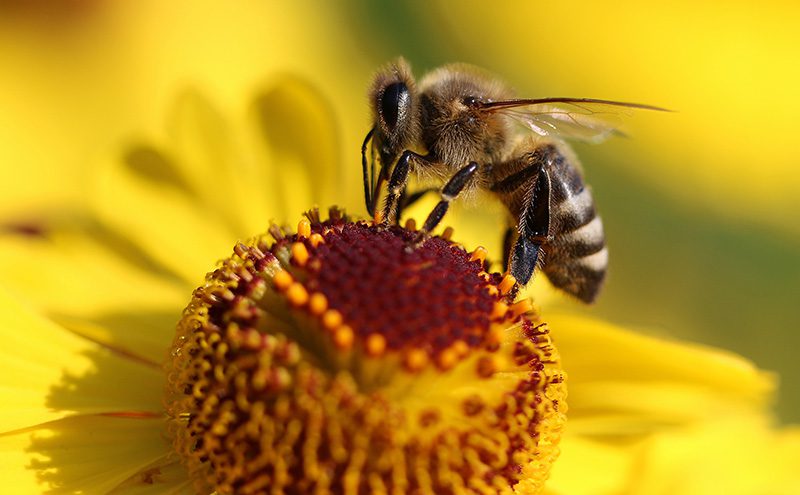
Database giant Oracle and The World Bee Project have announced an initiative that aims to use advanced computing and analytics tools to better understand the decline in bee populations and help protect them, an apparent world-first.
The new programme aims to use cloud technology to better understand honey bees, the world’s most important single species of pollinator in agricultural ecosystems. “The World Bee Project Hive Network” will remotely collect data using a network of connected beehives. The data will then be fed into Oracle’s Cloud, which will use analytics tools including artificial intelligence (AI) and data visualisation, to give researchers new insights into the relationships between honey bees and their environments.
The World Bee Project Hive Network will allow researchers to ‘listen’ to the honey bees – analysing intricate acoustic data captured inside the smart hives, including the movement of bees’ wings and feet. Combined with other precision measurements – including temperature, humidity and honey yield – researchers will be able to closely monitor bee colonies, detecting patterns and predicting behaviours. This will enable conservationists and bee keepers to take action to protect colonies, such as preventing swarming at the wrong time of year or removing predators like the invasive Asian Hornet. The value of the data is in informing beekeepers of various different states of the colony throughout the year to aid colony management.
“Our lives are intrinsically connected to the bees,” said Sabiha Rumani Malik, Founder and Executive President at The World Bee Project CIC. “By protecting bees and other pollinators we can help solve problems with global food supply and poverty and reduce further loss of biodiversity and damage of ecosystems. Our partnership with Oracle Cloud is an extraordinary marriage between nature and technology. It will engage the public into caring more and more for pollinators, it will enable advanced research and, crucially, action on a scale previously impossible to achieve. The more we understand the relationships between pollination, food and human wellbeing, the more we can do to protect bees and pollinators – and help protect our planet and ourselves.”
The data and insights gained by using Oracle Cloud will be made available to research and conservation projects working to protect bees around the world. By sharing resources and fostering collaboration, The World Bee Project Hive Network initiative aims to multiply its impact and enable greater action to save bees.
“Technology is changing the game for conservation efforts,” said John Abel, Project Director, Oracle Cloud. “Using cloud-based technology, the World Bee Project is going to have a truly global, real-time view of bee population health for the first time. This will arm researchers with the information needed to work with governments and beekeepers to help reduce the decline in honey bee populations.”
The World Bee Project CIC partners with the University of Reading School of Agriculture, Policy and Development, one of the top 10 agriculture schools in the world. In future the partners hope to add the vision of bringing novel IT and knowledge to support ecological intensification.
For more information see http://worldbeeproject.org.







